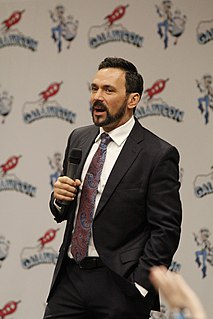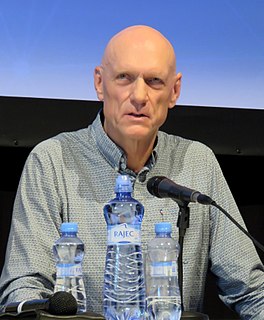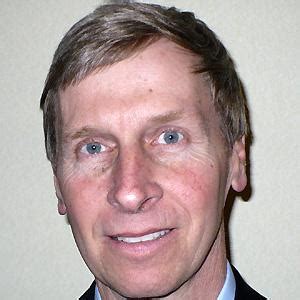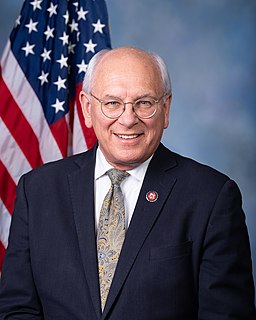A Quote by Alison Hawthorne Deming
Climate change is a moral challenge, not simply an economic or technological problem. It is linked to social justice, because it is the poor citizens of the world who will suffer the most from our excesses.
Related Quotes
But here is the heart of the moral issue for many of us. Simply put, those around the world who have contributed least to global warming and climate change will be the most and first to be impacted by the consequences of it all. Sadly, it's an old story. We, the affluent, create the problem, and the poor pay the price for our sins. It is wrong, and it is a sin-ours.
...the world needs to face up to the challenge of climate change, and to do so now. It is clear that climate change poses an urgent challenge, not only a challenge that threatens the environment but also international peace and security, prosperity and development. And as the Stern report showed, the economic effects of climate change on this scale cannot be ignored, but the costs can be limited if we act early
But no matter how big the effort to push a propaganda line might be, climate change is bigger. This, undoubtedly and regrettably, is the biggest immediate long-term environmental challenge we face. A failure to concretely come to some policy outcome on climate change has not only a negative environmental impact but also social and economic consequences for us.
Now it is the least developed world who are not responsible for this climate change phenomenon that bore the brunt of climate change consequences so it is morally and politically correct that the developed world who made this climate change be responsible by providing financial support and technological support to these people.
I don't believe that climate-change fiction will change the mind of a denier because most of the deniers I've met are basically in a cult situation. It's a faith issue. It's not a rational issue. There's no fact that's going to change their mind. They simply believe in the cult of climate-change denial and it somehow feeds into the rest of the mythos of their own life story.
I think the challenge of climate change in particular is the challenge for us to create and produce new norms for a new kind of world. And that's why I think as important as the issue of climate change is, it's even more important than it seems because if we can't evolve very quickly, new norms to deal with issues like climate change, we're not going to be able to survive in the kind of world we've created. So I think, really, the whole nature of democracy, of governance, of global community and of solving the kinds of problems of the 21st Century are really at stake.
There's always new work to do. Adjusting to the rapid pace of technological change creates real challenges, seen most clearly in our polarized labor market and the threat that it poses to economic mobility. Rising to this challenge is not automatic. It's not costless. It's not easy. But it is feasible.






































